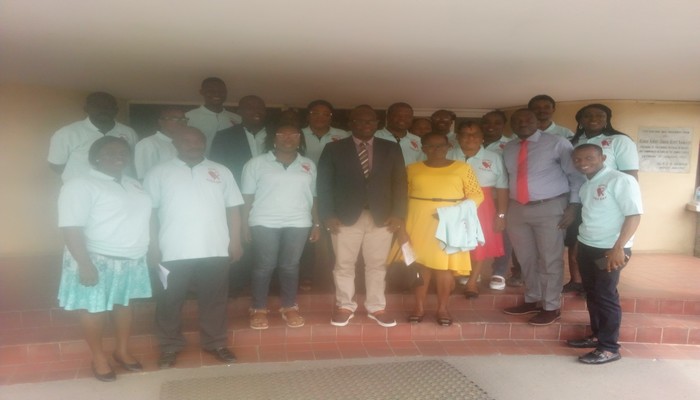World AIDS Day: Psychiatrist urges increased campaigns to change mindset, end inequality

A Consultant Psychiatrist, Dr Ojo Abayomi, has called for more campaigns to change people’s mindset toward HIV and AIDS to put an end to the disease by 2030, as predicted in the Millennium Development Goals (MDGs).
Abayomi made the call at a lecture organised by the Federal Neuro-Psychiatric Hospital Yaba in commemoration of the 2022 World AIDS Day in Lagos, with the theme of the 2022 World AIDS Day is: “End inequalities. End AIDS”.
He said lives would be saved through ncreased advocacy and education campaigns against the stigmatisation and inequality associated with HIV.
According to him, stigmatisation is one of the impediments to prevention and treatment of HIV and AIDS.
The psychiatrist said that stigma had prevented many people with HIV from seeking medical attention and treatment, thereby leading to increase in deaths from the disease.
“Many people today do not know their HIV status and are not even ready to know, while those who know their status cannot seek treatment due to fear of the stigmas surrounding HIV.
“Once there is stigma, depression sets in, leading to increase in mental health issues.
“If we do not remove stigmatisation, HIV/AIDS will continue to stay with us. Therefore, the objective is to join in eradicating HIV/AIDS by the 2030, as proposed in the MDGs,” Abayomi said.
Abayomi said that increase in awareness and sensitisation campaigns on HIV and AIDS would provide the public with the right information about the disease.
Speaking, a Clinical Psychologist at the hospital, Mr John Olusegun, identified traditional belief and mentality as barriers to eradicating HIV/AIDS in the country.
He said that people had developed certain mentality overtime around HIV, which he said had contributed to the increase in spread of the disease.
According to him, there is need for public re-orientation to change people’s mindset towards HIV/AIDS, saying that one of the major reason we keep having the disease is because of the mentality around it.
“We have realised that the way we are seeing the disease is not helping matter, rather, it is causing us to have more spread of this HIV/AIDS and it is also causing difficulty seeking help and even getting treated.
“So, our objective this time around is to find a way to change that trend; let people be able to come out better, get tested and treated on time to reduce the adverse consequences associated with HIV.
“A lot has to be done about changing our mindset and traditional belief toward HIV,” Olusegun said.
Contributing, a Chief Pharmacist at the hospital, Mr Andrew Olalekan, said there was need to stop all forms of gender inequality in order to make success in tackling HIV/AID in the country.
Olalekan said that women, girls and the vulnerable people were at higher risk of contracting the HIV/AIDS, calling for an end to all forms of discrimination against women.
He added that drug abuse thrives with HIV, saying that the engaging in substance/drug abuse increases the risk of HIV and mental health issues.
According to him, HIV/AIDS will continue to thrive as long as there is inequality, stressing that gender equality must encouraged at all costs.
Olalekan suggested community-led and people-centred infrastructure, equitable access to medicines, vaccines and health technologies, people-centred data systems that highlight inequalities, human rights protection among others as some of the measures needed to tackle inequalities in the society.






